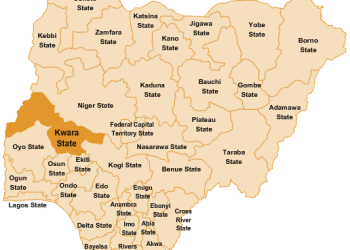Hoteliers in Kano State can now heave a sigh of relief, as they finally have the nod of the court to ply their trade without fear of harassment by officials of the Hisbah board. The officials have been told in plain terms that they have no right to harass members of the Hoteliers Association or disrupt their operations on the grounds that their activities contravene the Shariah law in the state.
Members of the Hoteliers Association in Kano had, four years ago, approached a Kano High Court to protect their constitutional right in the face of recurring raids of their hotels, arrest of their members under the guise of implementation of the state’s Islamic law and confiscation of their business property under the same excuse by officials of the board.
Justice Rabiu A. Sadiq who delivered the judgment in suit number K/102/2014, restrained the state’s Hisbah board, its agents, privies and whosoever is acting on its behalf from further attack, raid, arrest, detention, prosecution and confiscation of the property of hotel owners or molesting the association’s members in the name of enforcing the Shariah law. The court declared such acts illegal, null and void. Justice Sadiq said the Hisbah board overstepped its bounds by harassing the hoteliers and disrupting their legitimate activities. He therefore awarded N500,000 damages in favour of the association which had asked for N100million.
But the victory is not for the people in the hospitality industry alone; it is also good news to their customers now that they can enjoy themselves in the hotels without the usual fears of possible arrest or intimidation from the enforcers of the Islamic law.
Kano State Hisbah Corps was established in 2003 by the state government. Hisbah, an Arabic word, means an act performed for the society’s good. It is an Islamic religious concept that enjoins “what is right and forbidding what is wrong on every Muslim.” Other duties of the Hisbah Corps include arbitrating voluntary reconciliation of disputes, verbally chastising violators of Sharia, and maintaining order at religious celebrations. Hisbah officials are also trained to assist with disaster response operations.
The corps operates under the jurisdiction of a Hisbah Board composed of government officials, secular police officers, and religious leaders. In other words, they are like some other institutions in other states which assist in maintaining law and order. But Hisbah or other Shariah enforcing organisations lack the powers to arrest as the officers are armed only with non-lethal weapons like batons, for self defence.
Indeed, this would seem the basis of the judgment of Justice Sadiq. When they notice infractions of the law, their duty is to alert the regular police men and failure to accept this reality has often led the Hisbah officials to arrest perceived offenders, thereby incurring the wrath of the police.
Justice Sadiq’s judgment is expected to reverberate in many other parts of the north where similar organisations exist. Many of them often go beyond their bounds. The matter is a simple one of clash of constitutions and when this happens, one must bow to the other. The judge made this clear. He said the law which established Hisbah clearly spelt out the scope of its functions adding that they exceeded their functions as provided by their enabling law when they undertook to arrest, detain and prosecute members of the Hoteliers Association in the state.
We commend Justice Sadiq for upholding the supremacy of the grundnorm, the 1999 Constitution, which recognises the secular nature of the country as well as some basic freedoms of the citizens. We hope those concerned will take the judgment in good faith and limit their operations to areas and issues contained in the laws establishing them.













































